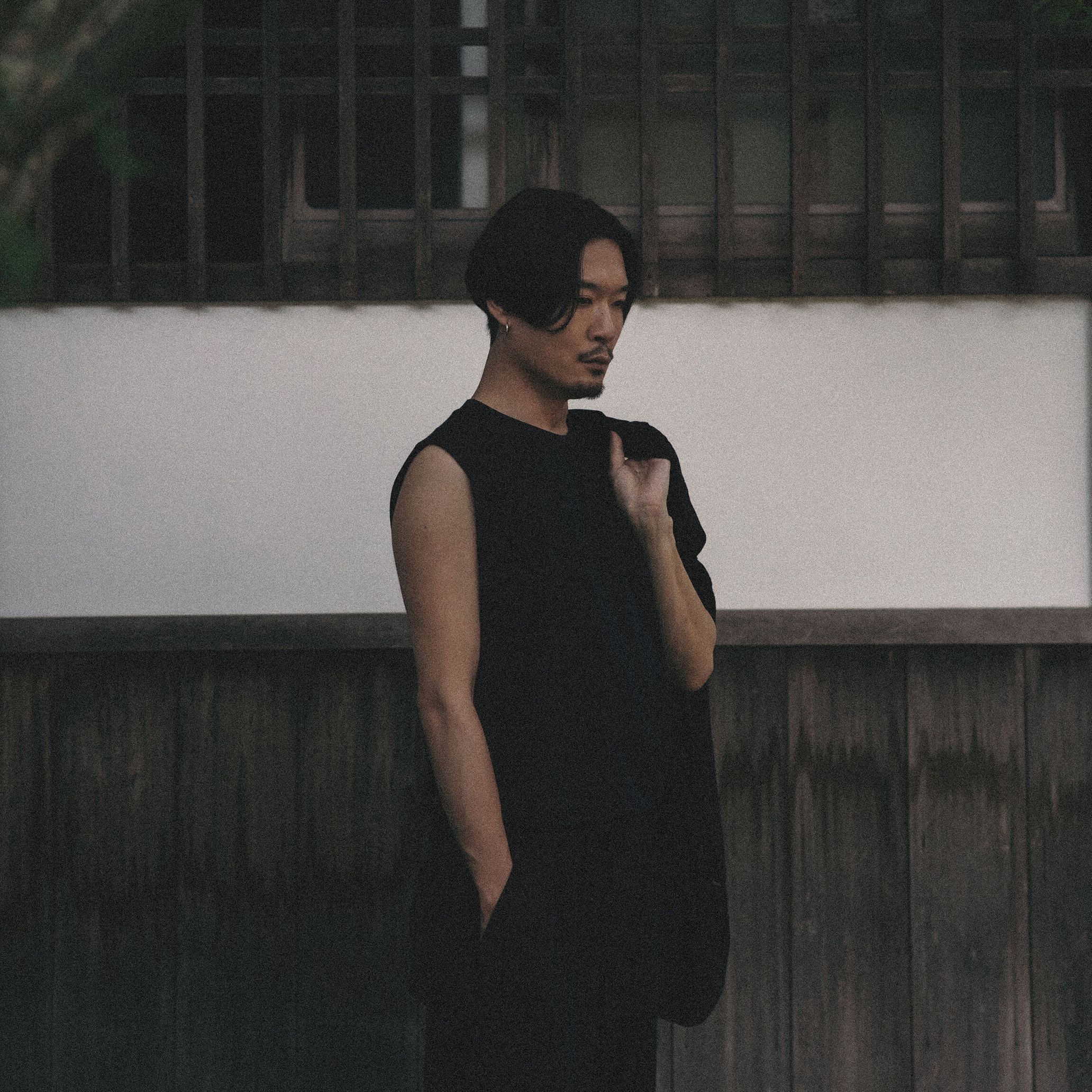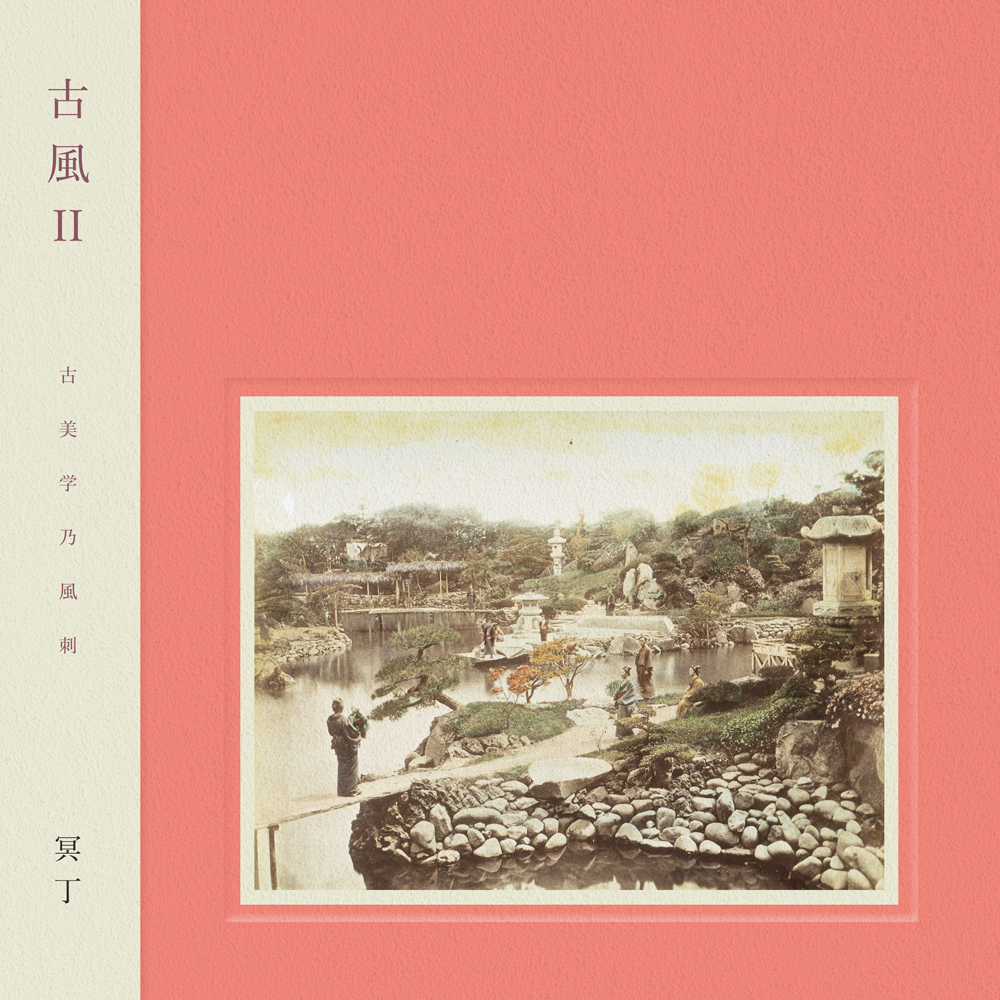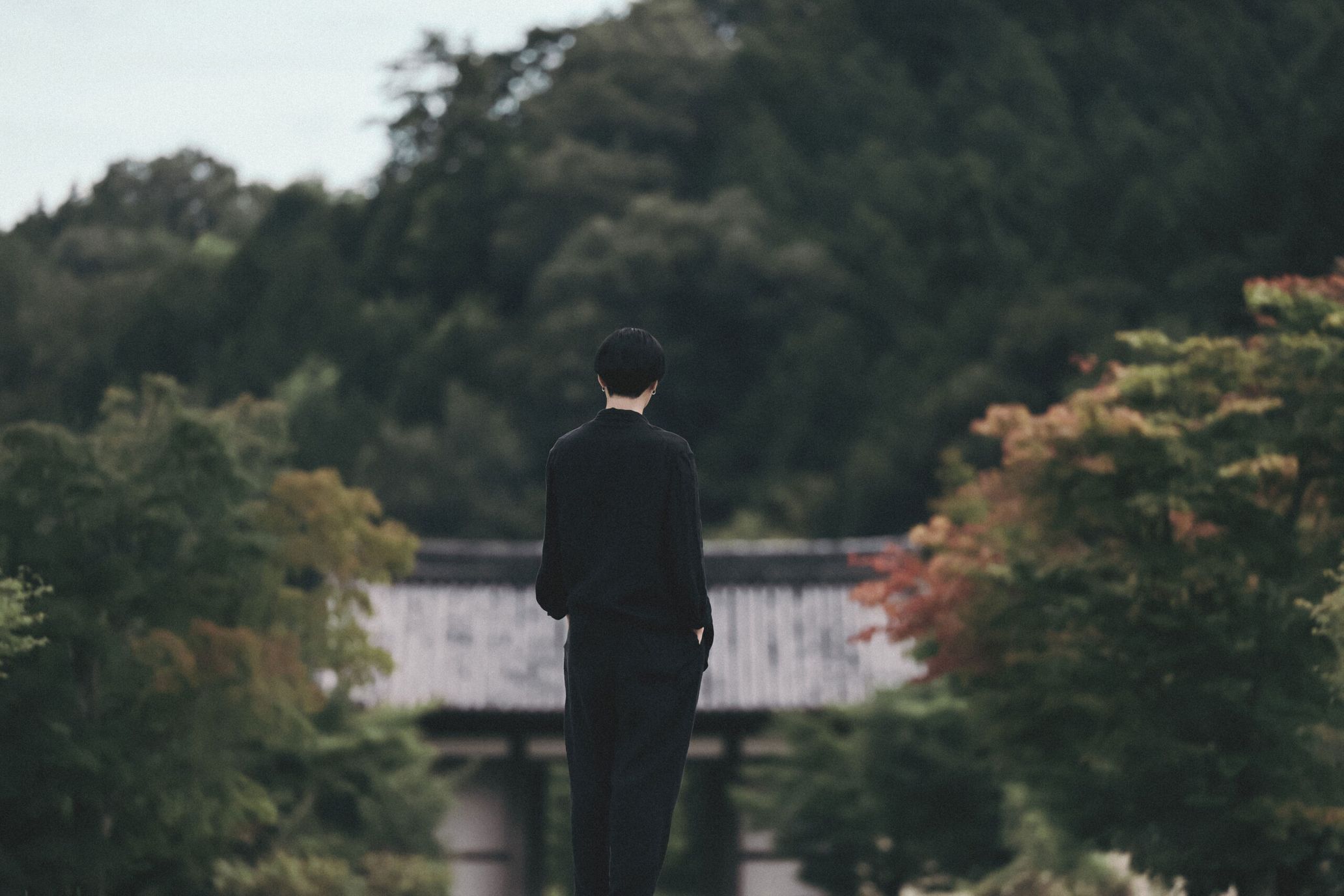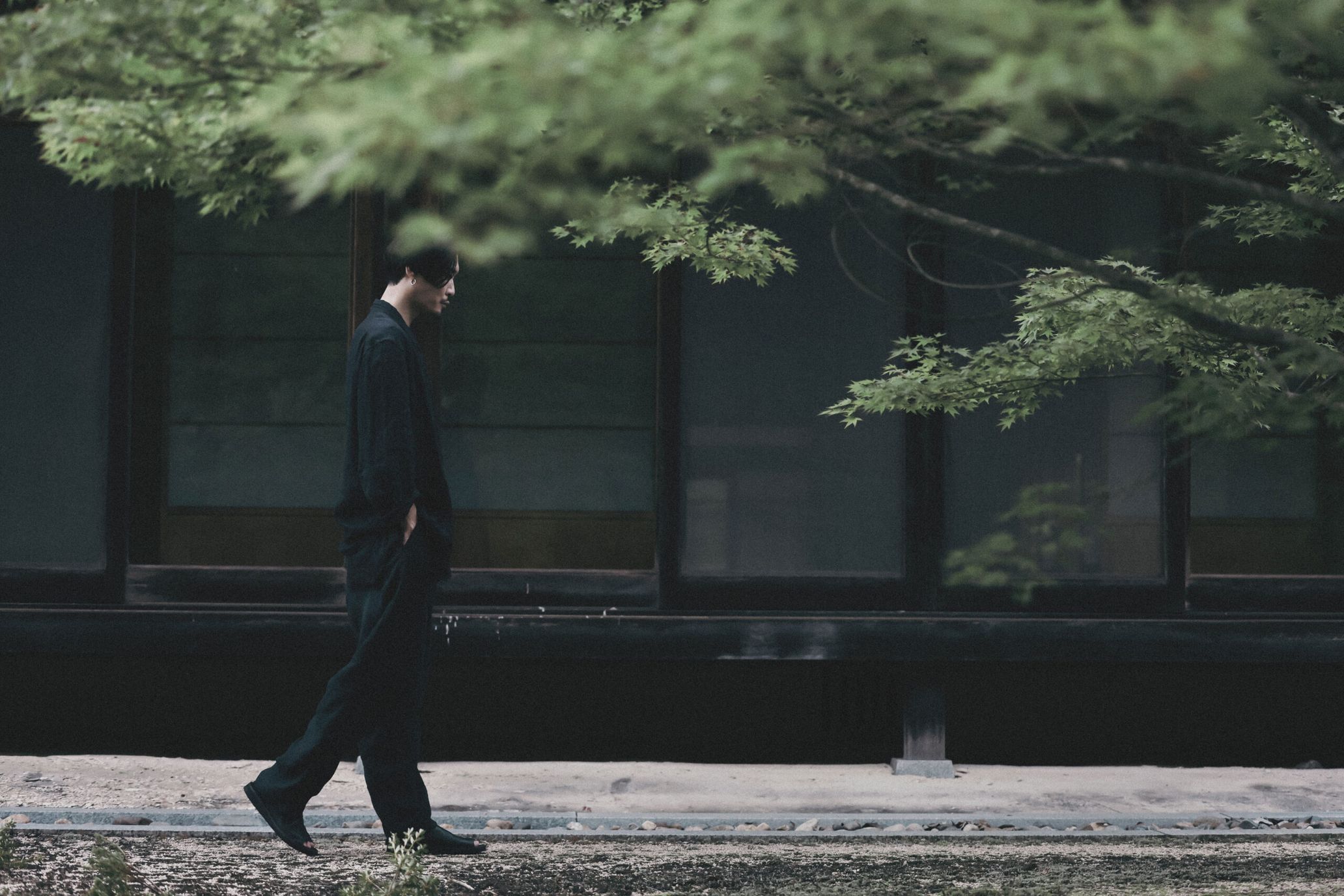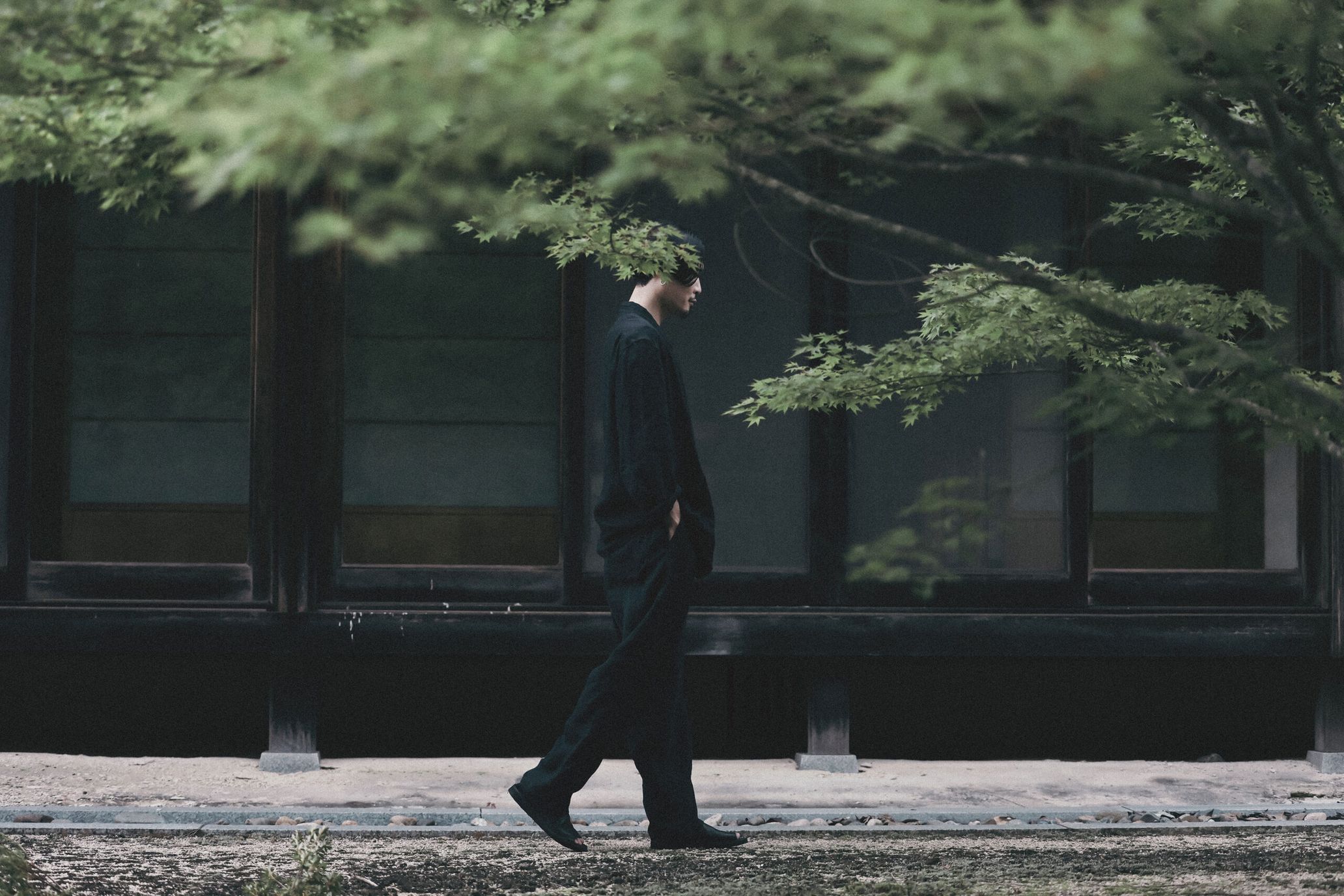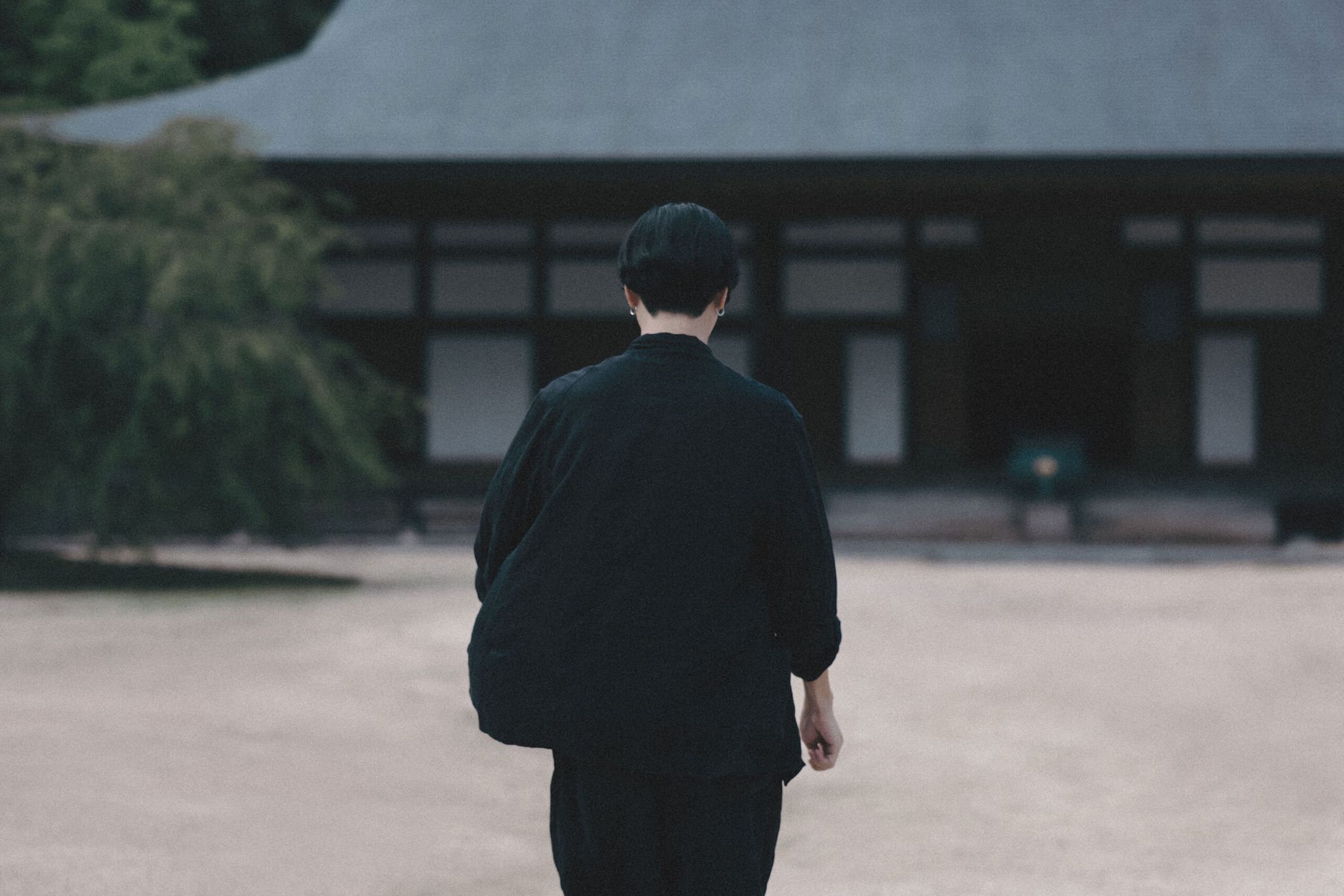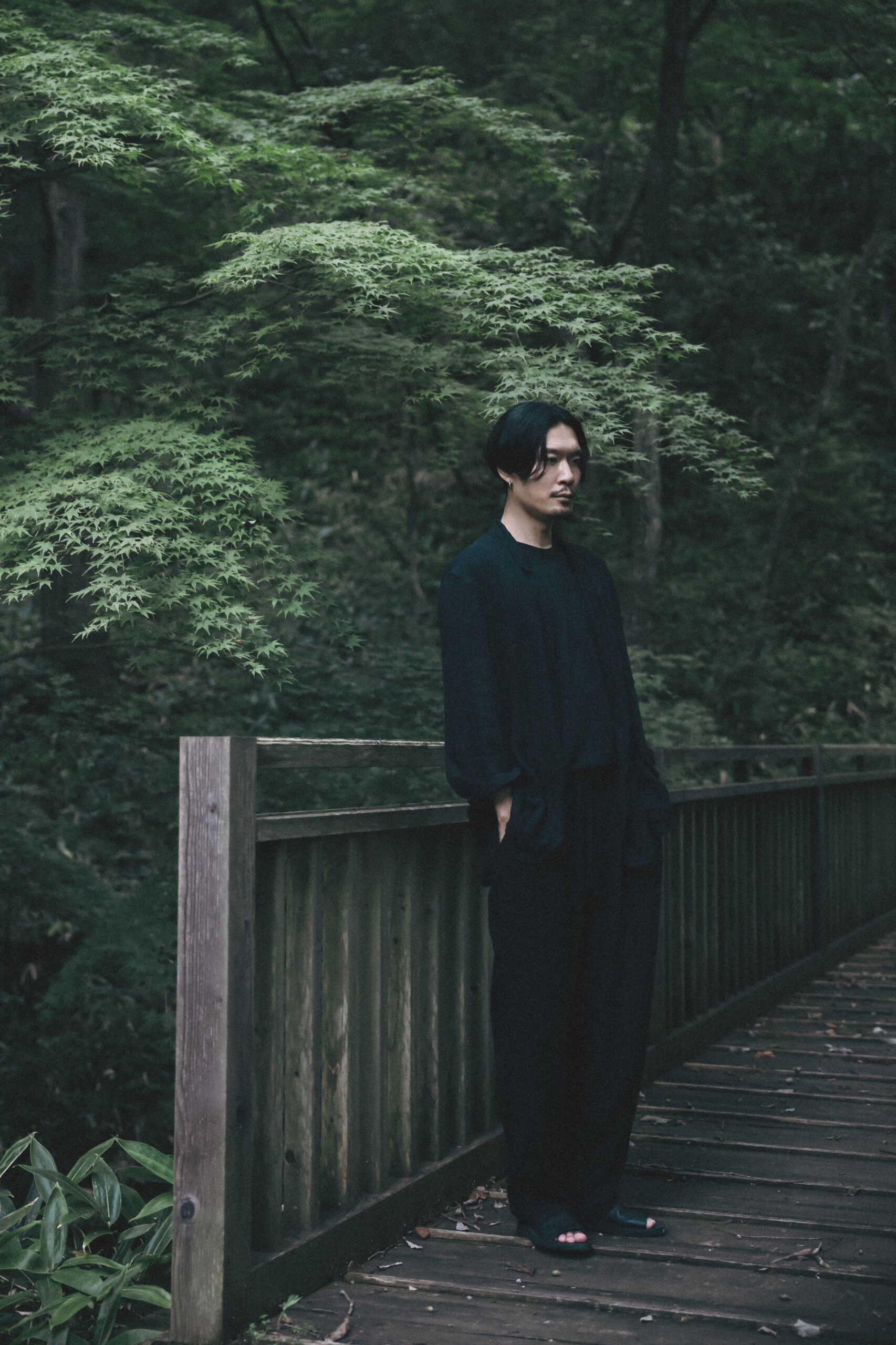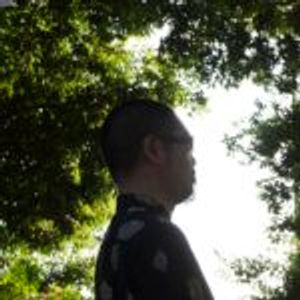Meitei is one of the most special musicians on this archipelago today. He’s an electronic musician without question, but his style of illustrating nostalgic emotions—via kouta, Japanese music sources, and traditional Japanese instruments—is like no other. There’s a significant sensibility, different from other Japanese ambient music.
Meitei’s also a musician with an air of mystery. Only a handful of interviews with him are available online, and he doesn’t proactively communicate his ideas on social media. Therefore, he has yet to reveal much of what exists in his musical universe.
Because of this, I’ve wanted to interview Meitei someday. His new album, Kofū II, is the second installment of Kofū, released in September 2020. I asked him some questions, and his response was over 10,000 characters. This is more than a mere interview about a new album; it’s a detailed description of his philosophy on creating an identity as an artist in Japan. The following is a closer look at the universe of Meitei’s music based on his answers.
The unprecedented non-verbal mood of Kofū II
Meitei’s recent albums on the theme of “Lost Japanese Mood,” Kaidan, Komachi, and Kofū, have been critically acclaimed abroad. Below is what Meitei thinks about it:
“I remember feeling a sense of possibility when I thought of the theme. As a Japanese person, I felt excited to show the world a new perspective on Japan, my home country.”
He initially planned to conclude the “Lost Japanese Mood” trilogy with the previous album, Kofū. However, Meitei created more than 60 songs for Kofū, and 47 songs were unreleased. So, he began producing the second installment of Kofū based on such sources. Upon learning about this, one might think Kofū II is a collection of songs that didn’t make the cut, but according to Meitei, that’s not the truth.
“As Meitei, I fundamentally place importance on the narrative of the album. If it doesn’t fit the narrative, I give up on recording something, no matter how high the quality of the music is. I couldn’t include many songs in Kofū because they didn’t fit the direction, but some of them are now alive on Kofū II.”
Kofū II portrays a different story from the previous album, despite it being the second installment. Sonically speaking, the lyrical melodies are still there, but it seems like the abstract spatiality and sound are pronounced more than before.
“The non-verbal moods unexpressed in Kofū are further emphasized. For instance, I transposed Japanese environments onto various scenarios and captured them on the songs. The result is an album that allows you to feel the panorama of Japan musically.”
Facing the music scene from an independent perspective
At the beginning of this article, I described Meitei as “a musician with an air of mystery,” but in an interview with Meitei that appeared in TOKION upon the release of his last album (interviewed by Yuji Shibasaki), the mystery surrounding him was gradually unveiled. In the article, Meitei expresses his discontent over how most of the music that’s considered Japanese has unconsciously become “Tokyo music.” Meitei is currently based in Hiroshima, but does this also reflect his awareness of the Tokyo-centric scene?
“In Hiroshima, I have an environment to create and foster a life of comfort and luxury for my music. I need to be comfortable, and my luxury and leisure time allow me to see things objectively.
“My awareness of the scene has been strong since I lived in Kyoto, and it was during then I realized Japanese music tends to depend on the scene. The Japanese scene has its core in Tokyo, which has its core in the west. The traditional ‘Japanese concept’ wasn’t widespread during the modernization period.
“For example, Japanese food is still at the heart of Japanese cuisine, and that culture is famous in the international community, but music isn’t. We’ve been referencing and copying music from overseas. Japanese people today have deemed it as a ‘Japanese-style expression.’ A scene is a place where that comes together. I believe there are types of Japanese music that can exist outside of this scene.”
There is something crucial implied here. Since the Meiji era, this country has been pushing forward music education modeled after Europe and the States, which has become the foundation of our understanding of music. Most popular music in Japan is established on this foundation, and the mass of such music forms a scene. Meitei is trying to be as liberated as possible from how music exists in Japan. He says an environment and situation where he can have an independent relationship with the music scene is ideal. This stance reminds me of Susumu Yokota, who had a commanding presence in the house/techno scene in the 90s but eventually distanced himself from the scene and took up creative activities in a hermit-like manner.
Meitei’s work consists of individual expression and narrative, removed from any scene and coeval trends. The climate of Hiroshima influences him, but most of all, his grandmother does:
“My grandmother managed a temple, and she was always chanting sutras and putting her hands together. She taught me if I put my hands together, even amid the noise of the world, my mind would be quiet. That lesson lives on in my heart even today.”
Exploring a Japanese vision that has no correct answer
I’ve been curious about the “Lost Japanese Mood” depicted in Meitei’s music, which in many cases is his Edo-style idea. The two Kofū albums can be seen as a sonic expression of images associated with the city of Edo. Meitei says the following:
“I wanted to use the power of music to emphasize symbolic images of Japan. What’s Japanese, and what has left a palpable impression internationally? One of them is the image of Edo, and there are people all over the world who expect that.”
This idea of Meitei’s could fall into the category of self-Orientalism. Meaning; he plays the role of Japan that the west expects. He internalizes the western gaze.
But the Japanese image expressed by Meitei has a particular beauty. It’s like imagining Japan of the past from a foreign land. Personally, when I visited Sao Paulo, Brazil, I was surprised to see the elderly Japanese-Brazilians residents speaking in old Japanese as if it had been frozen and preserved. That’s similar to this.
Meitei recalled his experience of studying in Australia for a short period in high school:
“When I played popular Japanese music at my host family’s house, it was nothing but western-style Japanese music. I’d like to use harsh words and let the high school student in me say something. For me, back then, Japanese music existed in a context manufactured by domestic media and advertising. There was a lot of competition and rivalry to see who could be the first to import the coolest music from abroad. In the expansive world of music, it was just petty fighting. Adults who behaved in such a divisive manner looked young and immature.”
The Singapore-based indie label, KITCHEN. LABEL played a big role in the creation of Meitei’s Japanese image.
“The core of Meitei has been constructed by working with an international team for the past three years. Spanning from the UK, Singapore, and the US, we shared our thoughts about Japan through an international sensibility. It was a great privilege. There were times when they were interested in ideas of Japan that I couldn’t affirm. That’s what made it interesting. There’s no right way to show Japan. The image of Japan I have is different from the image that people abroad have of Japan, so I have an opportunity to create a new vision of Japan.”
How does Meitei understand “Japaneseness”?
Today, on this archipelago, many things described as being “Japaneseness” or having “Japanese sentiment” include romanticized fiction. Additionally, the overuse of the loaded term “Japaneseness” can obscure the diversity and regional traits of the archipelago. What does Meitei think about such abuse of the concept of “Japaneseness”?
“There are times when the phrase ‘Japaneseness,’ which has become a template, is used unconsciously. It’s not perfect, but I’ve tried my best to express my idea of ‘Japaneseness.’ However, if one isn’t on the side that creates things, ‘Japaneseness’ is something that’s conveyed to oneself. One receives what’s made and tastes it. There’s a sense of being a consumer. Each person chooses their ‘Japaneseness’ and cultivates their notion of it. There’s no right or wrong answer, and I feel it’s a necessary process.
“Perhaps the problem is the fact that Japanese people don’t have a sense of pride. Pride is a kind of willpower or a potent emotional habit. Yes, we can interpret things freely when we lose this feeling, but then we wouldn’t become precious about them. We would let anything slide. It’s up to the individual to determine ‘Japaneseness.’”
The word, pride, makes me uneasy, but what he’s trying to say isn’t the same as patriotism, which could turn into racism. I see it as having the dignity of being a human being living in this archipelago. Meitei continues.
“Until now, Japan has used its technological forte as a selling point, but I don’t think it has led to the happiness of the people. Japan has achieved its success in the international battlefield through efficiency, logic, and conformity rather than a passionate spirit. Instead of facing it head-on, the country has excluded harmony from its options. In terms of music, when I express what I think of as ‘Japaneseness,’ that’s the first time I can take responsibility for myself. In this field, unless we produce what we consider Japanese music, we won’t be able to take responsibility for ourselves.“I don’t doubt that we have a lot of great music here. But we won’t feel pride by doing what we’ve been doing, even if the majority of Japanese people resonate with the music as an example of success. Ultimately, the most vital thing, humanity, doesn’t exist there.”
This is the end of Meitei’s music on the theme of a “Lost Japanese Mood.” What’s next in store for the artist?
“The status of Japanese food in the global food culture is established, but the equivalent of sushi doesn’t exist in music. Japanese music culture is unstable without Japanese food as its main ingredient. I’d like to evolve from a reactionary Japan to a daring Japan, starting with the field of sound. That’s what I hope to do.”
Photography Yuri Nanasaki
Translation Lena Grace Suda
Meitei
He is a Hiroshima-based artist. To date, he’s released Four albums on foreign labels: Kwaidan (2018), an album focused on the theme of ghosts and ghouls, and Komachi (2019), an album exploring the theme of nighttime, Kofū and Kofū II,. His music was used for the official promotion video for Sonar Festival 2020 in Spain. He also performed at MUTEK ES in Barcelona this March. He also produces music for a wide array of fields such as theater, films, and fashion.

